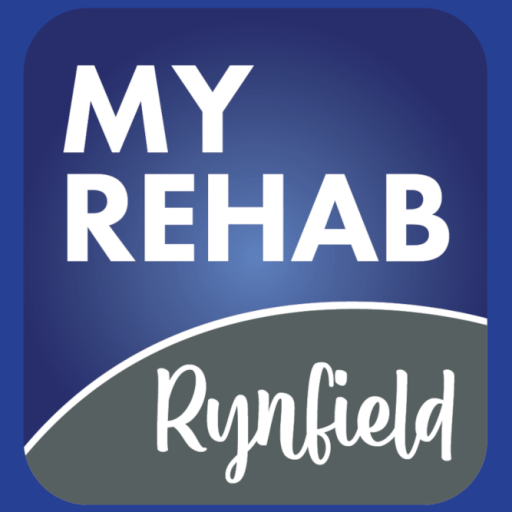
Drug Detoxification
Drug Detoxification
When it comes to drug detoxification, understanding the process is crucial. At MyRehab, the journey begins with personalized care that prioritizes your safety and comfort. Their comprehensive approach combines medical supervision and tailored treatment plans to address your unique challenges. But how exactly does this process work, and what can you expect during your stay? Let’s explore the key elements that set MyRehab apart in the detoxification landscape.
Understanding Drug Detoxification
When you think about drug detoxification, it’s essential to understand that it’s more than just stopping drug use; it’s a critical first step toward recovery.
Detoxification involves your body ridding itself of harmful substances, which can lead to withdrawal symptoms. These symptoms can vary in intensity and duration depending on factors like the type of drug, the length of use, and your overall health.
You might experience physical and emotional challenges during this process, making support crucial. Engaging with healthcare professionals can help you navigate these difficulties safely. MyRehab’s evidence-based treatment approach ensures that you receive personalized care throughout your detoxification journey.
The MyRehab Approach to Detox
The MyRehab approach to detox focuses on individualized care that addresses both the physical and emotional aspects of withdrawal. When you enter the program, you’ll undergo a comprehensive assessment to identify your unique needs. This personalized plan ensures that you receive the right support at every stage of your detox journey.
MyRehab emphasizes a holistic approach, integrating therapy and counseling alongside medical interventions. You’ll engage in various therapeutic activities that help you process emotions and build coping strategies. The supportive environment encourages open communication, allowing you to express your concerns and fears. With dedicated staff guiding you, you’ll feel empowered to take control of your recovery. This tailored approach increases your chances of successful detoxification and long-term sobriety, reinforcing the importance of personalized treatment plans in the recovery process.
Importance of Medical Supervision
Medical supervision during detox is crucial, as it ensures your safety and comfort throughout the withdrawal process. With trained professionals by your side, you can manage any potentially dangerous symptoms that may arise.
They monitor your vital signs, offer medication to ease discomfort, and provide emotional support when you need it most. This guidance helps you navigate the challenges of detoxification, reducing the risk of relapse.
Having a medical team available means you’ll receive immediate attention if complications occur, allowing for a smoother recovery. Moreover, their expertise can help you understand what to expect, empowering you to face the journey ahead with confidence.
Ultimately, medical supervision is a vital component of a successful detox experience.
Personalized Care Plans
A personalized care plan is essential for effective detoxification, as it tailors the treatment process to your specific needs and circumstances.
By assessing your medical history, substance use patterns, and personal goals, MyRehab creates a road map that guides your recovery journey. This individualized approach helps identify the right therapies, coping strategies, and support systems that resonate with you.
You’ll work closely with healthcare professionals who understand your unique challenges and strengths. Regular evaluations ensure that your plan remains relevant, adapting as you progress.
With a personalized care plan, you’re not just another patient; you’re an active participant in your recovery, fostering a sense of ownership and motivation throughout the detoxification process.
Common Detox Methods Used
While the journey through detoxification can be challenging, understanding the common methods used can empower you to make informed choices.
Many facilities employ medical detox, where healthcare professionals monitor your progress and administer medications to ease withdrawal symptoms.
Another option is holistic detox, focusing on natural remedies, nutritional support, and therapies like yoga or meditation.
Some people opt for rapid detox, which aims to shorten the detox process using anesthesia and medications, though it’s not always recommended due to potential risks.
Additionally, outpatient detox allows you to receive treatment while still maintaining daily responsibilities.
Whatever method you choose, it’s essential to consult professionals to determine the best approach tailored to your needs for a safer, more effective detox experience.
Coping With Withdrawal Symptoms
How can you effectively cope with withdrawal symptoms during detox?
First, staying hydrated is crucial; water helps flush out toxins and eases discomfort. Make sure you eat nutritious meals to fuel your body and stabilize your mood.
Consider engaging in light exercise or stretching to release endorphins, which can improve your overall sense of well-being.
Establish a routine that includes rest; adequate sleep is vital for recovery.
Reach out to supportive friends or family members who can encourage during this challenging time.
If symptoms become overwhelming, don’t hesitate to consult a healthcare professional for guidance.
The Role of Therapy in Detox
Therapy plays a vital role in the detox process, offering support that complements physical recovery. It helps you confront the emotional and psychological challenges tied to addiction.
Through individual and group sessions, you’ll gain insights into your behavior patterns, triggers, and coping strategies. This safe environment encourages open conversations, allowing you to express feelings and fears without judgment.
Therapy also fosters a sense of community, connecting you with others who share similar struggles. Building these relationships can enhance your motivation and commitment to recovery.
Aftercare and Ongoing Support
After detox, establishing a solid aftercare plan is crucial for maintaining your recovery. This plan helps you transition back into daily life and keeps you connected to support systems.
Regular check-ins with a counselor or therapist can provide guidance and accountability, helping you navigate challenges.
Consider joining support groups where you can share experiences and gain encouragement from peers who’ve faced similar struggles.
Finding healthy activities, like exercise or hobbies, can also fill your time and reduce cravings.
Don’t hesitate to reach out to friends and family for additional support. They can play a vital role in your ongoing recovery.
Success Stories From Myrehab Clients
Success stories from Myrehab clients highlight the transformative power of commitment and support in the recovery journey.
You’ll find countless individuals who’ve turned their lives around through personalized detox programs and compassionate care. For instance, one client, once trapped in addiction, now shares their story to inspire others. They credit their success to the supportive community at Myrehab, which helped them rebuild their life step by step.
Another client discovered newfound strength while participating in group therapy, forging lasting friendships along the way.
These success stories remind you that recovery is possible, and with the right tools and support, you can reclaim your life. Myrehab empowers you to face challenges, celebrate victories, and embrace a healthier future.
MyRehab’s drug detoxification program offers you a safe and supportive environment tailored to your unique needs. With personalized care, medical supervision, and a holistic approach, you’ll find the tools necessary to navigate withdrawal and build a foundation for lasting recovery. By integrating therapy and ongoing support, MyRehab empowers you to face challenges head-on. Take the first step towards a healthier, sober life—you’re not alone on this journey.
